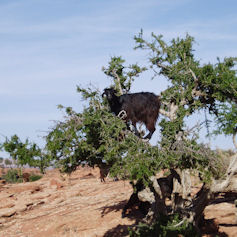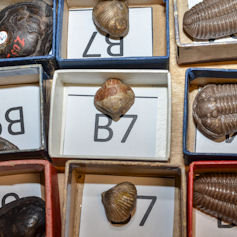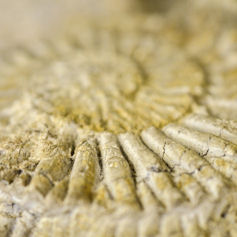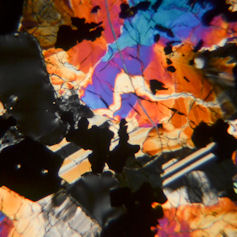
Life on Earth
Our work involves studying the origins and evolution of life on Earth and its interactions in modern ecosystems.
Our facilities
We use the latest interdisciplinary techniques to conduct our research, from genome sequencing in the lab to using mass spectrometry facilities in the field.
The Earth is unique among known planets in being home to life. Organisms first appeared on Earth nearly four billion years ago and have been responsible for shaping the development of the planet ever since, including changing the composition of the atmosphere and driving the formation of different types of rock. Work in the school spans from ancient life preserved in the fossil record to the examining of modern-day organisms and the ecosystems in which they live.

We study organisms ranging from the smallest microorganisms to the largest plants and animals, examining in particular how these organisms evolved and how they survive and interact with each other and with their environment. We work at scales ranging from molecules to the planet.
Research into life on earth includes activities of the Williamson Research Centre and the Interdisciplinary Centre for Ancient Life.
Research highlights
The University's investment in plant growth facilities
Discussion of greenhouses usually conjures up serene images of allotments or gardens, but we are setting our sights a little higher and ramping up our greenhouse construction. At our historic botanical grounds, home to an extensive living plant collection, we are building new facilities dedicated to plant growth research. This will enable us to reproduce climates ranging from the Arctic to the tropics, and conduct research into key challenges such as food security, soil biodiversity and climate change mitigation. The site will also house new high tech facilities for monitoring atmospheric pollution, forming part of our exceptional environmental research and teaching facilities.
Animal poo improves conservation
It may not be obvious but an animal's poo can tell us what their response to climate change and habitat destruction might be. Scientists from the Department of Earth and Environmental Sciences and Chester Zoo have been investigating just this, studying zebras in South Africa. By measuring stress hormones in a zebra's poo, the researchers have found that zebras are facing multiple challenges, including poor habitat and gender imbalances, which are likely to compromise their health, have repercussions for their reproduction and, ultimately, a population's long-term survival.
Areas of expertise
Major topics on which our research focuses include:
-
Conservation biology
Our researchers use ecology and evolutionary biology techniques to monitor the responses of terrestrial and aquatic communities to a range of challenges including habitat loss, disease outbreaks and invasive competition. Our work also informs wildlife management and conservation strategies and assists in the enforcement of prohibitions on the trade in endangered species.
-
Evolutionary mechanisms and dynamics
Evolution has shaped life as we know it. Our research uses theoretical, computational and experimental approaches to understand and predict the structure and behaviour of biological systems and their evolution as environments change, organisms mutate and natural and sexual selection occurs.
Read more
-
Geomicrobiology
Geomicrobiology lies at the interface of geology and biology. Our research combines the techniques of microbiology and molecular biology with physical, chemical and modelling approaches. By doing so, this work highlights the role that microorganisms play or have played in key geological processes.
-
The history of life on Earth
Palaeontological and archaeological remains are essential for understanding how organisms, including humans, evolve and respond to long-term environmental change. We employ morphological, chemical and biomolecular tools to study past patterns of palaeobiodiversity, evolutionary innovations, and the earliest genetic modifications of plants at the transition to farming.
Read more
-
Plants, soils and ecosystems
Plants and the complex biological communities that inhabit soils interact with each other and respond to environmental changes. Researchers on plants, soils and ecosystems study these interactions and their consequences in natural and managed ecosystems, as well as how plants and algae respond to environmental stresses.
Find out more
-
Microbial ecology
The ecology of microbial communities has a significant impact on ecosystems as a whole. This topic underpins much of our cross-disciplinary research, including projects ranging from the response of polar fungal communities to climate change through to understanding the microbial controls on bulk and trace elements in natural and engineered environments.





